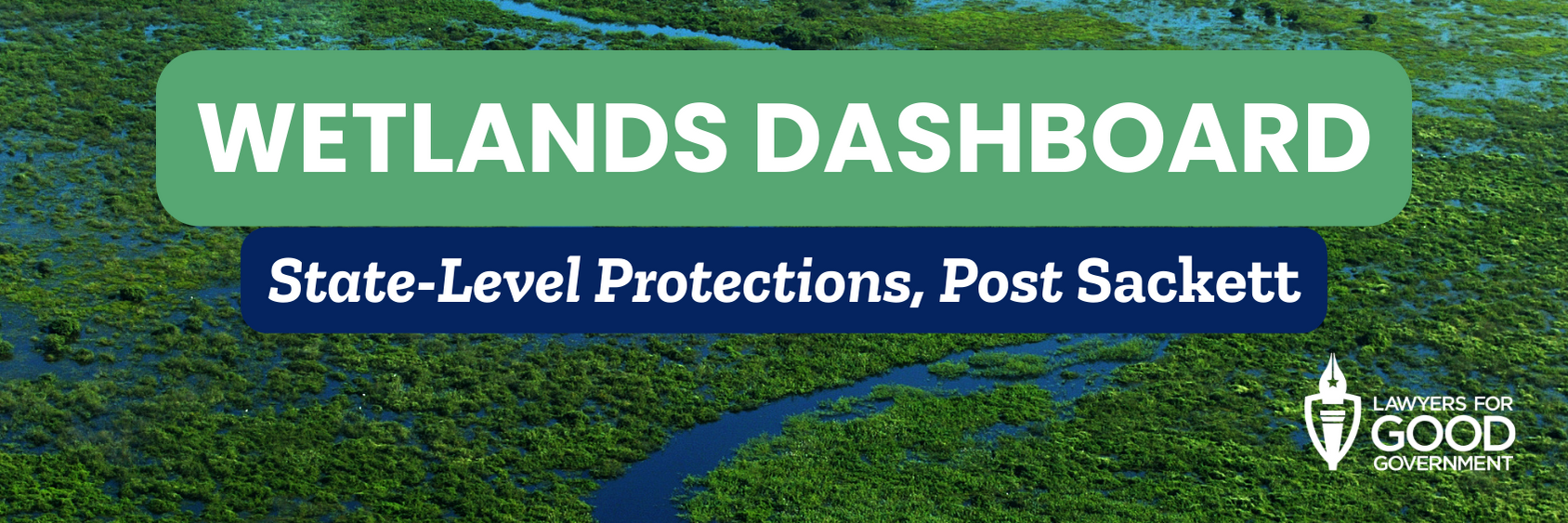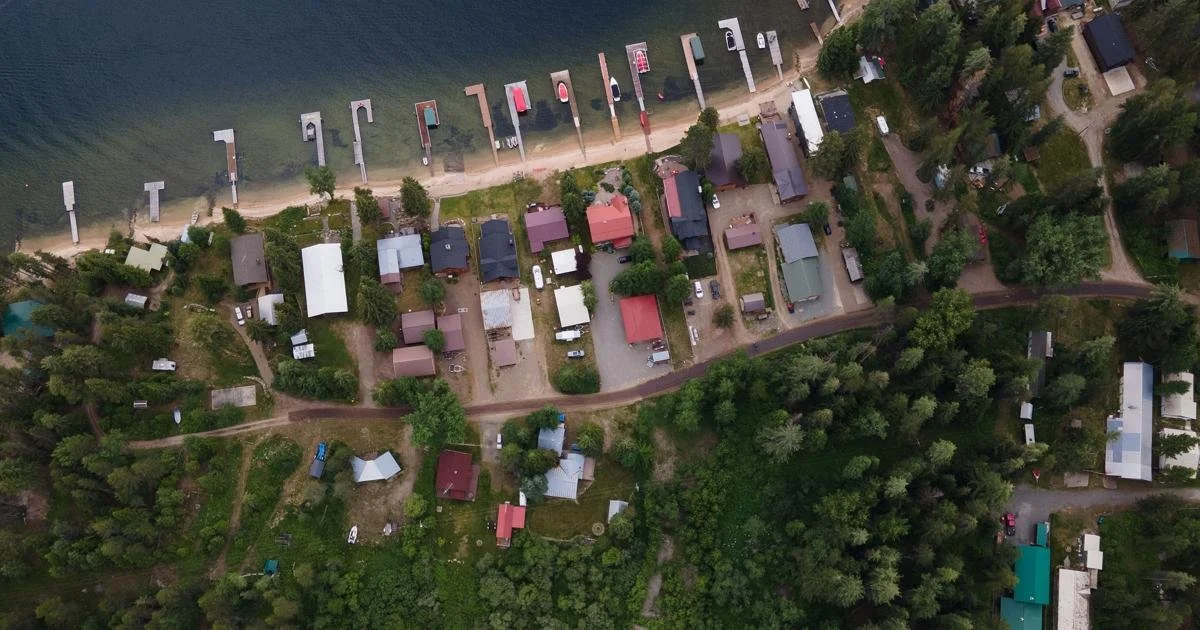OVERVIEW
State-level protections for wetlands are more important than ever. On May 25, 2023, the United States Supreme Court issued its opinion in Sackett v. Environmental Protection Agency, overruling over 50 years of well-established protections for surface waters and wetlands by dramatically narrowing the scope of the Clean Water Act and the Environmental Protection Agency’s authority. Until federal protections can be reinstated at the federal level, protections for wetlands at the state level will be critical. With the federal government no longer protecting approximately ½ of the country’s surface waters, it is up to state and local governments to protect wetlands and safeguard water resources from pollution and destruction.
Lawyers for Good Government (L4GG), and its pro bono attorney partners, compiled this dashboard of existing water and wetland protections at the state level for all 50 states as well as the District of Columbia and Puerto Rico to catalog and evaluate what state-level protections exist for wetlands and what state-level protections are missing. The dashboard identifies:
Each state’s definitions of “waters of the state” and “wetlands;”
The relevant regulating agencies protecting these resources;
The protections for wetlands already that exist in the state;
Any proposed changes made to wetlands protections as of May 2024;
The processes for amending existing state law and policy defining state water and wetlands, protections potentially available at the local level, and;
Whether the state offers a model policy for protecting wetlands.
To help determine whether local entities might have authority to quickly modify and expand protections at the local level, the dashboard also identifies whether a particular state has “Home” or “Dillon” Rule. This distinction determines the level of authority that a municipality might have to legislate protections. In “home rule” states, local governments are vested with legislative authority and may act on matters of local concern, unless a statute preempts local action. In a state without home rule, called “Dillon’s Rule” states, local governments may act on a matter only if a statute authorizes local action.¹
L4GG created this dashboard of state-level protections to help attorneys, advocates, policymakers, regulators, and state legislators identify gaps in their own states’ wetland protections and provide examples of effective or novel protections from other jurisdictions. L4GG hopes that this dashboard will serve as a resource for state and local leaders and advocates to effect positive measures in protecting wetlands and water resources at the state level in response to the gaping hole in federal regulation left by the Sackett decision.
The dashboard also includes an assessment of whether the particular state offers a model policy for other states to follow. The types of criteria used to assess whether a policy could be viewed as a model include, but is not limited to: whether it offers a comprehensive definition of waters and wetlands, whether the state protections are comparable to federal protections, and whether the state policy includes a citizen suit provision, a funding mechanism, or any major exclusions that would make the protections less effective.
L4GG’s dashboard is published in tandem with Advocacy in Action: Sackett v. EPA: The State of Our Waters One Year Later Report, by Protect Our Waters, a project of the Clean Water for All Coalition. The report provides a comprehensive overview of the actions taken by states in the year after the Sackett decision was issued.
LIMITATIONS AND CAVEATS
The law concerning wetlands and clean water is rapidly evolving. This report provides data researched as of May 2024, but we anticipate that new and proposed laws, regulations, and policies will be announced and proposed by state legislatures and agencies. This dashboard will be updated as new information becomes available.
If you have a proposed update to the findings in your state or any other feedback, please click here.
STATE-LEVEL FINDINGS
AcknowledgeMENTS
Jillian Blanchard is the Director of Lawyers For Good Government's Climate Change Program and a nationally recognized energy and natural resources attorney. As director, she has managed over 600 lawyers nationwide working with nonprofit partners on projects to provide legal assistance to municipalities, state decision makers, nonprofit partners, and marginalized communities to expedite the country's shift to a just and equitable transition to clean energy and to ensure the equitable distribution of historic federal funding in climate, water, and infrastructure.
Jonathan Dinerstein is the Environmental Justice Staff Attorney in the Climate Change and Environmental Justice Program at Lawyers for Good Government. Mr. Dinerstein has substantive experience in environmental compliance and enforcement, infrastructure and utility law, with a particular focus in environmental justice law. Mr. Dinerstein is licensed to practice law in the State of Massachusetts.
Thank you as well to Nicole Chavez, CCEJ’s Program Coordinator.
We would like to thank all of our nonprofit coalition partners who provided information for this report, including the Clean Water for All Coalition, Natural Resources Defense Council, EarthJustice, RiverNetwork, the National Wildlife Federation as well as L4GG’s Pro Bono attorneys at several private law firms, including Sheppard Mullin, Brown Rudnick, Davis Wright Tremaine, Foley Hoag, Clean Energy Counsel, DLA Piper, Willkie Farr & Gallagher, Holland & Hart, and Nelson Mullins, who provided hundreds of hours of critical pro bono research and analysis for this report.
We would also like to thank Professor Oday Salim, and law students Ishaan Golding and Kathleen Lok from the University of Michigan Law School's Environmental Law and Sustainability Clinic for their assistance and research.
FOOTNOTES
The authority of municipal governments in “Dillon’s Rule” states is limited by the express language of state law and what is incidental or necessary to the exercise of that authority.



